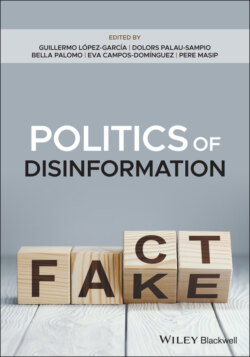Читать книгу Politics of Disinformation - Группа авторов - Страница 25
Shifts in the Capital Accumulation Cycle
ОглавлениеFrom our perspective, it is impossible to split the rise of online disinformation from the current platform capitalism and its links to global chains of production. As Friedman (2006) suggests, in the past, the high transaction costs to transport goods and information on a global scale made the coordination of different factories in a global chain impracticable. Concentrating the manufacturing process in a single plant or close to that ideal was a naturally cheaper decision. Nevertheless, with the rise of globalization, transaction costs have dropped due to improvements in computing and communication technologies. As a result, globally unbundling the production chain became attractive to several companies, generating a “flat world” (Friedman 2006), i.e. a world unlimited to capital expansion.
The primary accumulation process until the 1950s, based on the value extraction of physical commodities, was gradually replaced by the digital technologies of data mining (Sadowski 2019). Rahman and Thelen (2019) stated that the shift towards data financialization was an advancement of the neoliberalist venture capitalism that was typical in the 1980s. The politico-economic context that benefited these developments rests in the permissive jurisdictions, supportive legal regime, and the financialized business sector in the US (the country that pioneered the platform business model and spread it globally) (Rahman and Thelen 2019).
Platform companies now rein in these global chains because the value of information as data can be extracted in two ways. On the one hand, they can encourage user connections and personal content circulation that benefit their economic interests as data accumulators. The content produced by users enhances the infrastructural nature of these platforms as necessary mediators of the users’ online presence. On the other hand, platforms collect data traits with or without user consent, converting it into more data – a process called “datafication” (Mejias and Couldry 2019). Thus, this raw material goes through a “data mining” procedure. As a result, it is packaged and sold to “data buyers (advertisers and data brokers) and platform service providers” (Mejias and Couldry 2019, p. 5). To sum up, users’ data are the raw material that generates trade commodities for value extraction.
Since platform companies do not produce what they sell – that is, users’ data – all of the material infrastructure involved in this business model (e.g. cables, energy, and satellites) guarantees the maintenance of platform capitalism (Srnicek 2018). In this process of production and circulation (Marx 2015), commodities are valued as long as they can generate more aggregate data from users. Circulation is a founding aspect of making capital from money. Platform companies accelerate this process by the model of monetizing the extraction of data from users. Fake news is the showcase that works to attract more public to produce more data. This subgenre of disinformation therefore has a significant value in the logic of platform capitalism.
Currently, global chains involving platform companies (viz Google, Amazon, Facebook, Apple, and Microsoft) require free circulation of data without any regulatory mechanisms to protect users’ privacy and to maintain geopolitical security. As an improvement in the deregulation groundwork of neoliberalism, platform capitalism takes advantage of the fact that intergovernmental organizations (for instance, the World Trade Organization) have historically favored their influential members’ commercial interests in political and economic aspects, spreading them globally. Accordingly, international legislation and multilateral pacts often sidestep any attempts to regulate the informational flux. As scholarly literature shows (Srnicek 2018; Sadowski 2019, 2020), the most harmful consequence is the monopolization of collective wisdom into market secrets (encapsulated right now in enigmatic algorithms).
